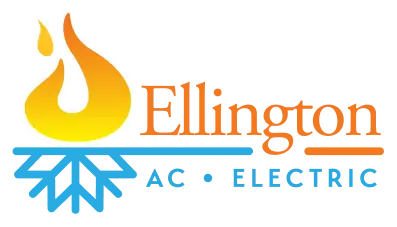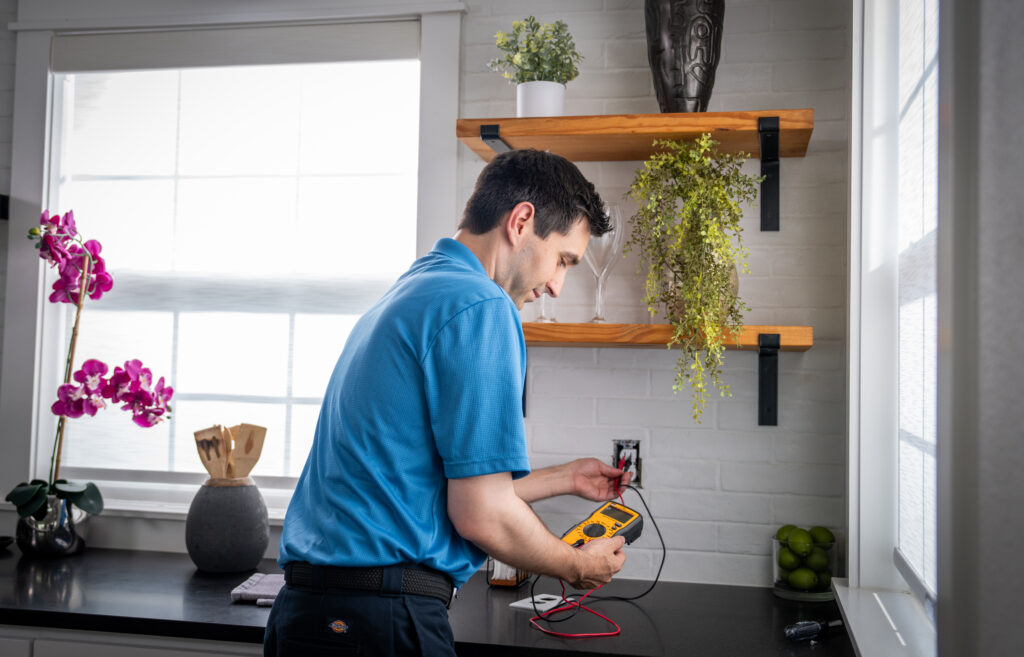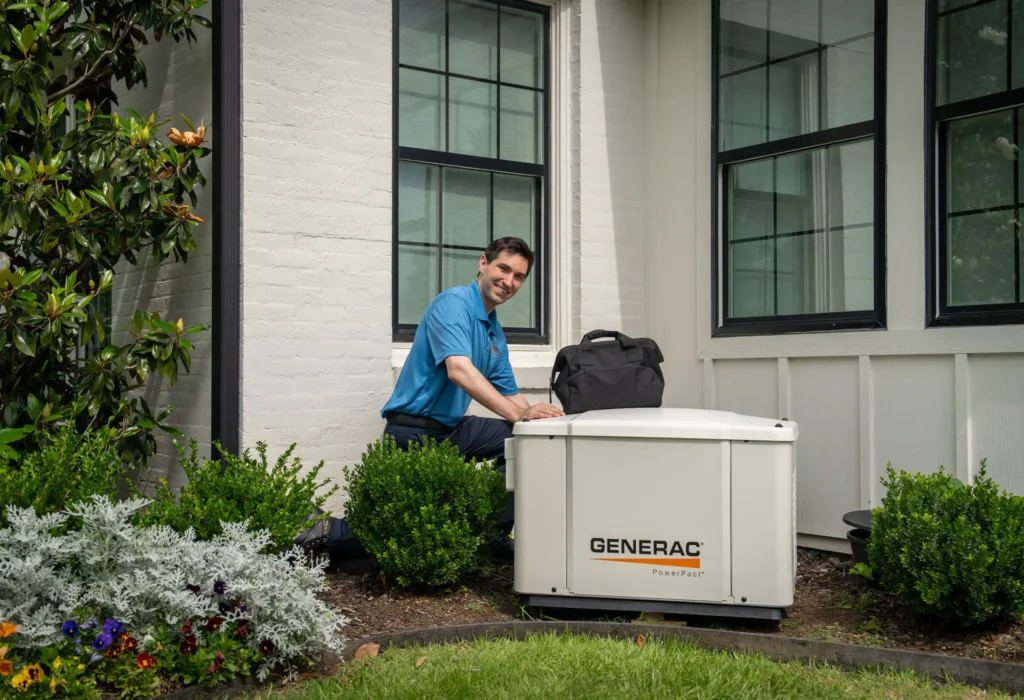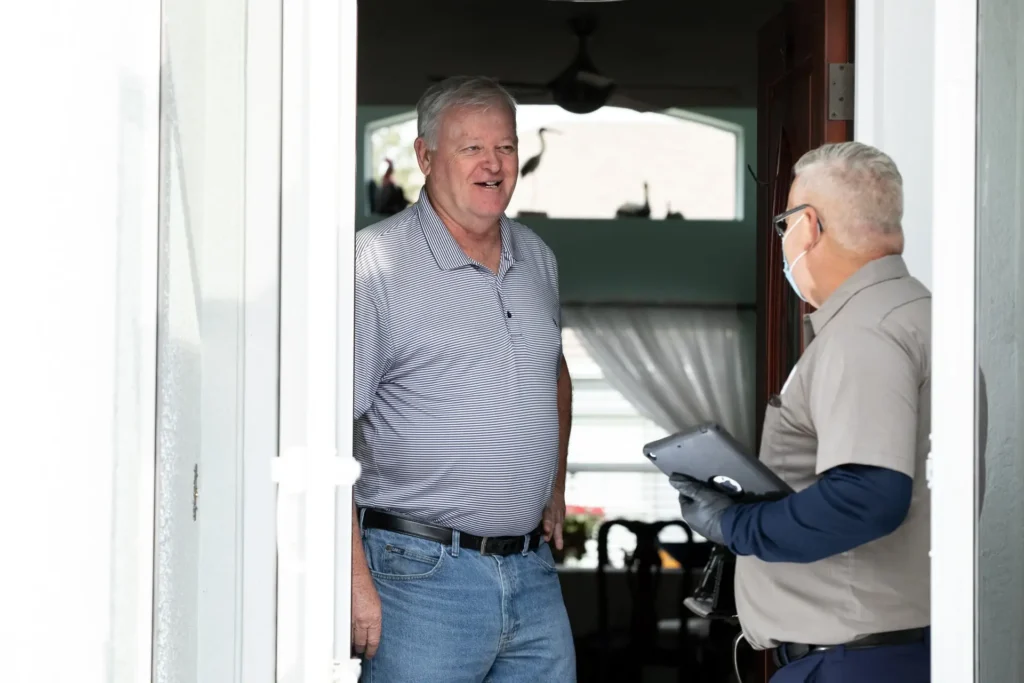

BLOG
Home Generator Options for Space Coast Hurricanes

When hurricanes loom on the Florida horizon, power outages are almost inevitable. For homeowners on the Space Coast, a reliable home generator is more than a convenience—it’s a vital part of storm preparedness.
This guide will help you understand your home generator options, how to choose the right system, the right Licensed Generac Home Generator Provider, and why early planning can keep your family safe and comfortable.
Dwindling Generator Supply During Hurricanes
As hurricane season approaches, demand for home backup generators skyrockets. Stores across the Space Coast quickly run out of the best generators for power outages, leaving many families scrambling. Waiting until a storm is imminent often means settling for a generator that doesn’t fit your needs—or missing out entirely.
By preparing early, you can:
- Secure the best generator for hurricane season before supplies run low.
- Allow time for professional installation by a Generac Authorized Dealer like Ellington, especially for standby generators.
- Avoid supply chain delays that often follow major storms.
Early planning gives you peace of mind and ensures your home is ready, no matter the forecast. Ellington’s Trusted Generac Backup Power Experts can help you assess your needs and take action before the next storm arrives.
Understanding Generator Types and Features
Choosing the best generator for Florida hurricanes starts with understanding the available types and features. The right choice depends on your home’s size, your budget, and how much power you want during an outage.
Types of Home Backup Generators
There are three main types of home backup generators, each suited for different needs:
- Standby Generators: Permanently installed outside your home, these units automatically restore power when the grid goes down. They’re ideal for homeowners seeking seamless, whole-house coverage. Standby generators typically run on natural gas or propane and require professional installation.
- Portable Generators: More affordable and flexible, portable models can power essentials like refrigerators, lights, and small AC units. They’re a popular choice for those looking for the best portable generator for hurricane emergencies but require manual setup, fueling, and safe outdoor placement.
- Inverter Generators: A quieter, more fuel-efficient type of portable generator, inverters provide clean power for sensitive electronics and are great for running a few essentials during shorter outages.
Think about how much of your home you want to power, your budget, and whether you prefer a permanent or flexible solution. Ellington’s team can help you weigh the pros and cons for your specific situation.
Fuel Types for Home Backup Generators
Fuel type is another key consideration, especially in Florida’s storm-prone environment:
- Natural Gas: Convenient if your home has a gas line, and there’s no need to refuel. However, supply can be interrupted during severe hurricanes.
- Propane: Easy to store and can keep a generator running for days or weeks. Requires a tank and periodic refills, but is less likely to be disrupted by storms.
- Gasoline: Readily available in normal times, making it a common choice for portable generators. However, it can be hard to find during emergencies and has a limited shelf life.
- Diesel: Efficient and powerful, making it a good choice for heavy-duty needs. However, it’s noisier and requires careful fuel storage.
- Solar/Battery: Clean and quiet, these are best for charging electronics or running a few small appliances during brief outages, but aren’t suitable for whole-home backup during long storms.
Choose a fuel type that’s accessible in your area and fits your comfort level with storage and refueling.
Choosing the Right Power Capacity for Your Backup Generator
It’s important to match your generator’s capacity to your household’s needs. Start by listing the essentials you want to keep running during an outage—refrigerator, air conditioning, medical devices, lights, and phone chargers. Add up the wattage for these items to determine your minimum requirements.
If you’re debating between a generator for essentials only or a whole-house solution, it’s often better to have a little extra capacity than to risk overloading your system. The best generator for floods or extended outages is one that can keep your family comfortable for days, not just hours.
Portability vs. Standby Options in Home Generators
Another important consideration is whether you want a generator that’s portable or permanently installed:
- Portable Generators: Offer flexibility and lower upfront costs. They’re a good choice for renters or those who only need to power a few essentials, but require manual operation and safe outdoor placement.
- Standby Generators: Provide automatic, seamless backup for your entire home. The initial investment is higher, but the convenience and peace of mind can be well worth it—especially for families who rely on medical equipment or want to avoid any disruption.
Local regulations and installation requirements may also influence your decision. Ellington’s team of Generac Standby Generator Specialists can help you navigate these factors and choose the best generator for hurricane season.
Weather Resistance and Durability
Florida’s coastal climate demands weather-resistant equipment. Salt air, high humidity, and heavy rain can quickly wear down unprotected generators. When shopping for the best generator for storms, look for models with weather-resistant, corrosion-proof enclosures and high wind ratings.
But can you run a generator during a hurricane? It depends. Most generators are designed for outdoor use, but it’s important to keep them protected from direct exposure to water. Always follow manufacturer guidelines for safe operation, and never run a generator indoors or in enclosed spaces, as this can be extremely dangerous.
With a clear understanding of generator types, fuel options, and weather resistance, you’re ready to move on to the key steps for choosing the right generator for your home.
How to Choose a Generator for Your Home
Selecting the best generator for Florida hurricanes involves more than just picking a model off the shelf. Here are a few things to consider as you narrow down your options:
- Capacity: Make sure the generator can handle your essential load. Whole-house standby units are often the best generators for Florida homes, while portable or inverter models are suitable for powering a few key appliances.
- Fuel Type: Choose a fuel that’s easy to store and access in your area. Propane and natural gas are popular for standby units, while gasoline and dual-fuel models add flexibility for portables.
- Noise Level: Some communities have noise ordinances, so quiet inverter generators may be a better fit for close-knit neighborhoods.
- Safety Features: Look for automatic transfer switches, overload protection, and built-in carbon monoxide sensors for peace of mind.
- Maintenance: Regular checks and professional servicing are essential to keep your generator ready for the next storm. Choose a model with a straightforward maintenance schedule, and ask about service plans from Ellington.
By weighing these criteria, you’ll be better equipped to choose a generator that fits your home, budget, and lifestyle.
Best Generators for Space Coast Hurricanes
A dependable generator is one of the best ways to protect your home and family during Florida’s storm season. With so many home generator options available, the right choice comes down to your household’s needs, your budget, and your peace of mind. Preparing ahead ensures you won’t be left scrambling when a storm is on the horizon.
If you’re ready to explore your options or need expert advice on selection and professional home backup generator installation, Ellington’s local team is here to help. Reach out today to get started—and enjoy confidence and comfort, no matter what the forecast brings.






